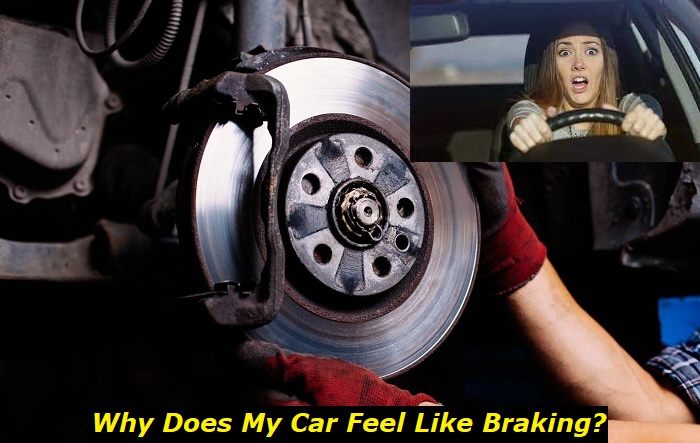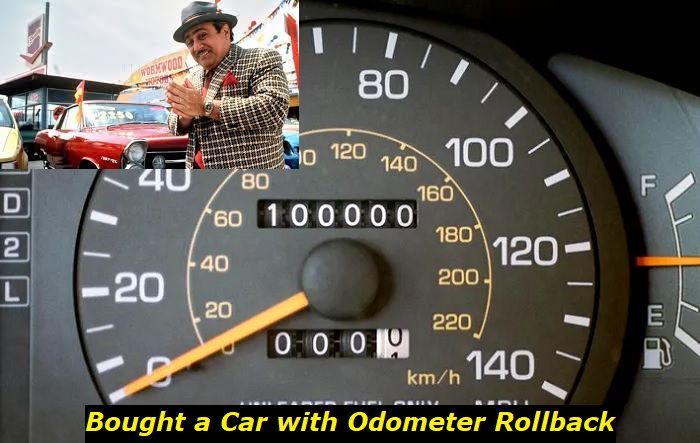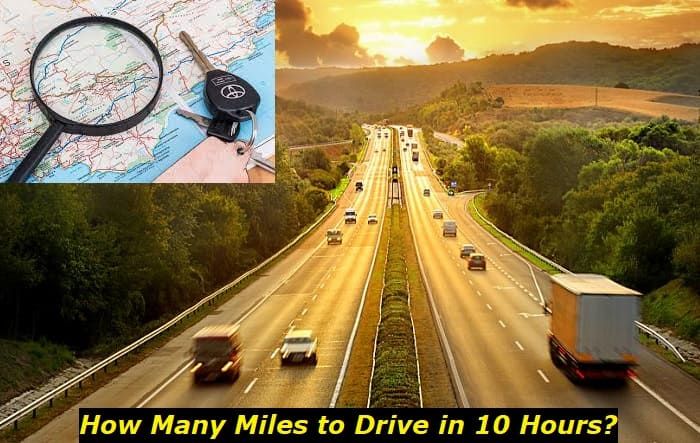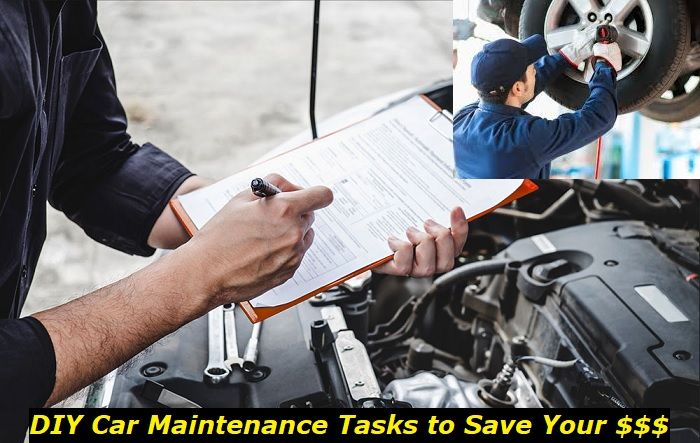There can be multiple reasons why your car feels like it's braking while driving. Some of the common reasons are stuck brake calipers, warped brake rotors, faulty ABS, and vacuum system issues. According to the reason why your car feels like it's braking when driving, the fixes will vary.
Common brake problems highlights
- Level of urgency:super-urgent
- DIY diagnostics:possible but not recommended
- DIY repairs:impossible
- Price for repair:$150 - $450
- Common symptoms:issues with braking, car brakes on its own, brakes are inefficient, sounds when braking
- Commonreasons:fluid issues, caliper problems, cylinders problems, brake booster issues
- If ignored:no brakes, accidents, dangerous situations

Why Your Car Feels Like It's Braking When Driving
As mentioned above, there are multiple possibilities if your car feels like it's braking when driving. The better you understand these reasons, the easier it'll be to diagnose and get the problem fixed.
1) Stuck Brake Calipers
Brake calipers are a critical component of the braking system. Once you press down on your brake pedal, the brake calipers are responsible for applying the necessary force to the brake pads. Which then press against the rotors to produce the necessary braking force.
When your brake calipers get stuck, they fail to contract when you press the brake pedal. If your car feels like it's braking when driving, there is a chance that your brake calipers are stuck in a position where your brake pads are constantly rubbing on your rotors. So, it'll feel like you are constantly applying the brakes even though your foot is nowhere near the brake pedal.
It is often rust or debris that results in stuck brake calipers. This is more likely if your car has been sitting without being driven for a long period. Over time, moisture, and other contaminants can cause corrosion to develop on the brake caliper's sliding pins or pistons, which can hinder its movement.
Other than the sensation of your car feeling like it's braking when driving, stuck brake calipers can also lead to various other problems. The constant contact of your brake pads and rotors will surely result in accelerated wear on your brake pads. Plus, the friction will also cause your braking unit to overheat, potentially damaging your brake rotors. And finally, your fuel economy will also reduce as your car will need to produce more power than usual.
2) Warped Brake Rotors
If your car feels like it's braking when driving, another possible cause is warped brake rotors. Your brake rotors are directly attached to your wheels, and they spin along with it. Once the brake pads come into contact with the rotors, the friction between them allows your car to slow down.
Often when brake rotors warp, it is because it's being subjected to extreme heat. This happens during aggressive braking or driving downhill for long periods. Even if you don't succumb to the above two, a rapid change in temperature can also warp your rotors. For example, if you drive through a puddle of water while your rotors are hot, the temperature can end up warping your brake rotors.
Once warped, the irregularities on the surface of the rotors can cause them to come in contact with the brake pads, even though you might not be applying the brakes. This contact can also result in vibrations or pulsations that can be felt through the steering wheel or the brake pedal.
3) Faulty ABS
If your car is equipped with ABS, it could also be the reason why your car feels like it's braking when driving. ABS is available in almost every modern vehicle. It is a safety feature that keeps the wheels from locking up during emergency braking. But why would you want to keep your wheels from locking up when the reason you are pressing the brakes is to stop the car? The moment your wheels lock up, they would start to skid, and the driver will lose all control of the vehicle. With the ABS, your wheels don't lock up, and continue to spin slowing down as much as possible, while allowing the driver to have complete control over the vehicle.
However, if your ABS fails, it might become overly sensitive. It May end up engaging erroneously during regular driving conditions. When the ABS is triggered it causes intermittent braking. Where the brakes may momentarily apply and release even when the driver is not pressing the brake pedal.
Several reasons can contribute to a faulty ABS system, but more often than not, when your ABS fails, it is due to a sensor malfunction. The ABS sensor relies on the wheel speed sensor to monitor the rotation of each wheel. If these sensors are damaged or dirty, they can send incorrect signals to the ABS, leading to unintended brake activation. Other than that, other electrical problems such as faulty wiring, damaged connectors, corrosion, or even a complete ABS module malfunction could also result in unintended braking while driving.
4) Vacuum System Issues
This issue only concerns vehicles with power-assisted brakes. So, what exactly is a vacuum system? It is a component of the power brake booster, which is only present in modern vehicles with power-assisted brakes. The brake booster is designed to reduce the effort that is required for braking. This is an intricate process, but to simplify, when you press down on the brakes, the vacuum system amplifies the force applied, allowing for smoother more efficient braking.
When this vacuum system fails, it can lead to inconsistent brake application. This'll cause your car to feel like it's braking with varying intensities while driving. Usually, vacuum hose leaks are what cause issues with the vacuum system. The vacuum hoses that connect the engine to the brake booster tend to wear off over time or get damaged. These vacuum hose leaks can affect the brake booster's proper operation.
Another major part is the check valve. The check valve is responsible for maintaining vacuum pressure in the brake booster, even if the booster is not receiving vacuum from the engine. If the check valve fails, it can also disrupt the entire operation of the brake booster.
How To Fix These Braking Issues
Once you identify the reason why your car feels like it's braking when driving, you can focus on getting the problems fixed.
1) Freeing The Brake Calipers
If your brake calipers are stuck, the first thing you need to do is remove the wheel and access the braking unit. Look for signs of corrosion damage or even debris accumulation around the brake calipers.
If the problem is caused by dirt or debris accumulation, try cleaning the caliper thoroughly to remove all the material. If your calipers are rusted, it's a bit more complicated. If the rust is only on the surface, you can try to clean it off with a specialized solution. But if it's severe, you'd have to get your brake calipers replaced.
Either way, before putting it all back together, make sure to clean the calipers thoroughly before assembly. Additionally, lubricate the caliper's sliding pins and pistons with the appropriate grease to ensure smooth movement.
2) Dealing With Warped Brake Rotors
Start off by inspecting your brake rotors. This will allow you to decide what to do next. Check for signs of warping such as visible irregularities on the rotor's surface or excessive wear. After the inspection, you are left with two options. One of the options is resurfacing the rotors. If the warping is minimal, resurfacing is an option. This involves removing a layer of metal off the rotor to get rid of any irregularities and restoring a smooth surface. But if your rotors are severely warped, or worn off to the point wear removing any more metal is not an option, you have to get your brake rotors replaced.
3) ABS or Vacuum System-Related Problem
Unlike the other two issues, when you are encountering problems with your ABS or vacuum systems, it is more complicated. In the case of the ABS, try checking the wheel speed sensor. In most cars, the wheel speed sensor is easy to access. Check for visible signs of damage. If damaged, you'd have to replace the sensor. If not, try cleaning the sensor and re-installing it.
If your car has power-assisted brakes, inspect the hoses for any leaks. Check for visible damage on the hoses and check for any leaks through the seals. You can also inspect the check valve. If it is not retaining vacuum pressure get it replaced.
Other than the above procedures, there is not a lot you can do about ABS or vacuum system-related problems. These are complicated systems that are better left off to an expert to handle. So, it is recommended that you seek professional assistance when encountering ABS or vacuum system-related problems.
Don't Ignore Brake Issues
If your car feels like it's braking when driving, even though you might be able to manage, it is recommended that you get the problem addressed as soon as possible. If left to linger, the problem will worsen to a point where your brakes are no longer dependable. It's not only uncomfortable to continue driving if your car feels like it's braking when driving, but it is also dangerous.
By understanding the reasons behind these problems and following the appropriate fixes, you can resolve the issue and can maintain a safe and enjoyable driving experience. If you are uncertain about any aspect of brake system diagnosis, or repair, always seek assistance from a qualified mechanic.
About the authors
The CarAraC research team is composed of seasoned auto mechanics and automotive industry professionals, including individuals with advanced degrees and certifications in their field. Our team members boast prestigious credentials, reflecting their extensive knowledge and skills. These qualifications include: IMI: Institute of the Motor Industry, ASE-Certified Master Automobile Technicians; Coventry University, Graduate of MA in Automotive Journalism; Politecnico di Torino, Italy, MS Automotive Engineering; Ss. Cyril and Methodius University in Skopje, Mechanical University in Skopje; TOC Automotive College; DHA Suffa University, Department of Mechanical Engineering






Add comment